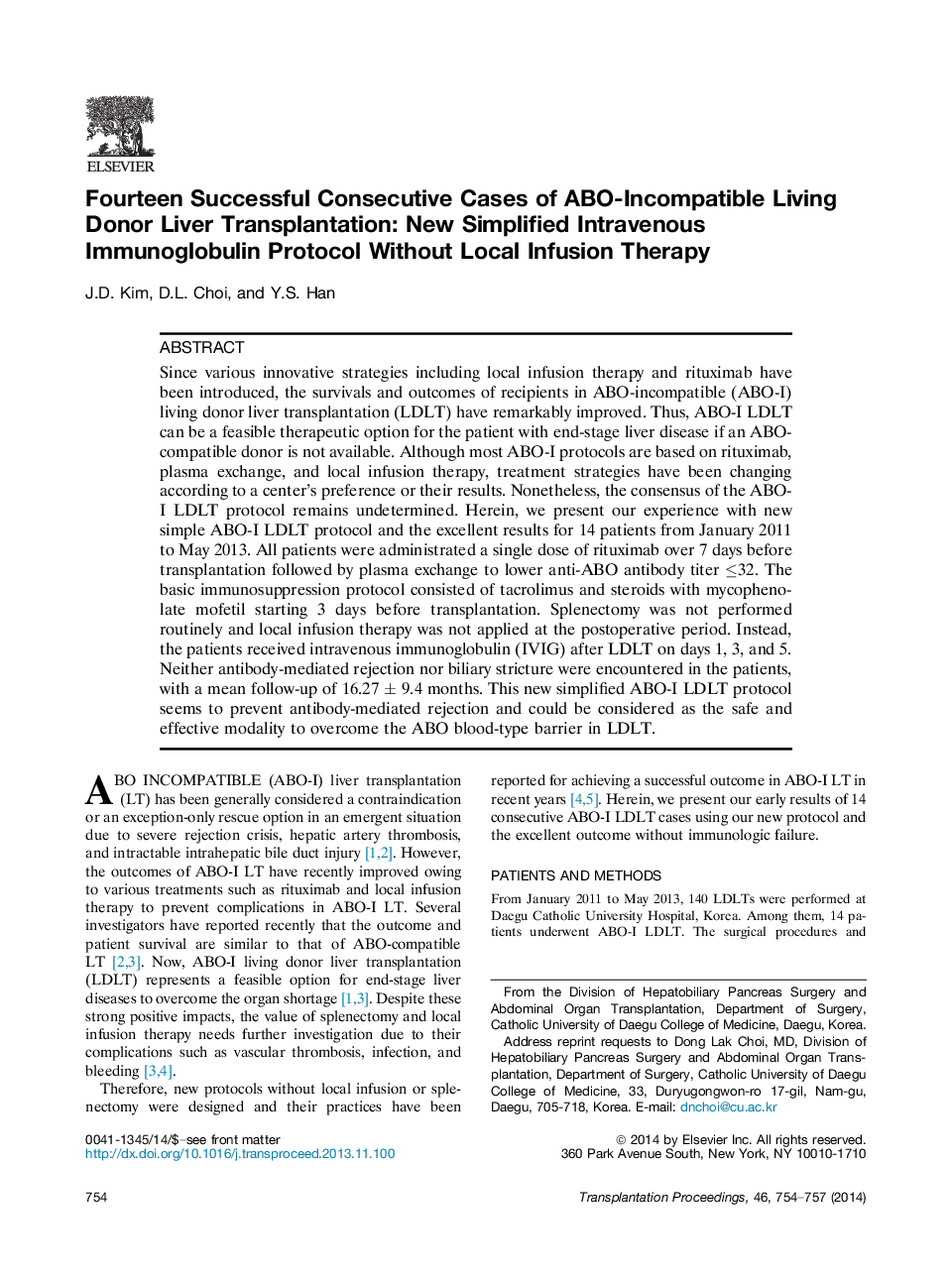| Article ID | Journal | Published Year | Pages | File Type |
|---|---|---|---|---|
| 4258387 | Transplantation Proceedings | 2014 | 4 Pages |
Since various innovative strategies including local infusion therapy and rituximab have been introduced, the survivals and outcomes of recipients in ABO-incompatible (ABO-I) living donor liver transplantation (LDLT) have remarkably improved. Thus, ABO-I LDLT can be a feasible therapeutic option for the patient with end-stage liver disease if an ABO-compatible donor is not available. Although most ABO-I protocols are based on rituximab, plasma exchange, and local infusion therapy, treatment strategies have been changing according to a center's preference or their results. Nonetheless, the consensus of the ABO-I LDLT protocol remains undetermined. Herein, we present our experience with new simple ABO-I LDLT protocol and the excellent results for 14 patients from January 2011 to May 2013. All patients were administrated a single dose of rituximab over 7 days before transplantation followed by plasma exchange to lower anti-ABO antibody titer ≤32. The basic immunosuppression protocol consisted of tacrolimus and steroids with mycophenolate mofetil starting 3 days before transplantation. Splenectomy was not performed routinely and local infusion therapy was not applied at the postoperative period. Instead, the patients received intravenous immunoglobulin (IVIG) after LDLT on days 1, 3, and 5. Neither antibody-mediated rejection nor biliary stricture were encountered in the patients, with a mean follow-up of 16.27 ± 9.4 months. This new simplified ABO-I LDLT protocol seems to prevent antibody-mediated rejection and could be considered as the safe and effective modality to overcome the ABO blood-type barrier in LDLT.
